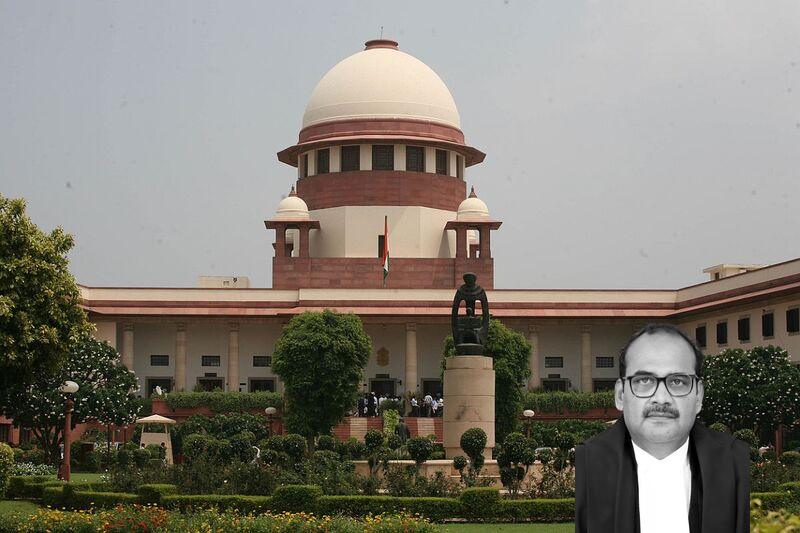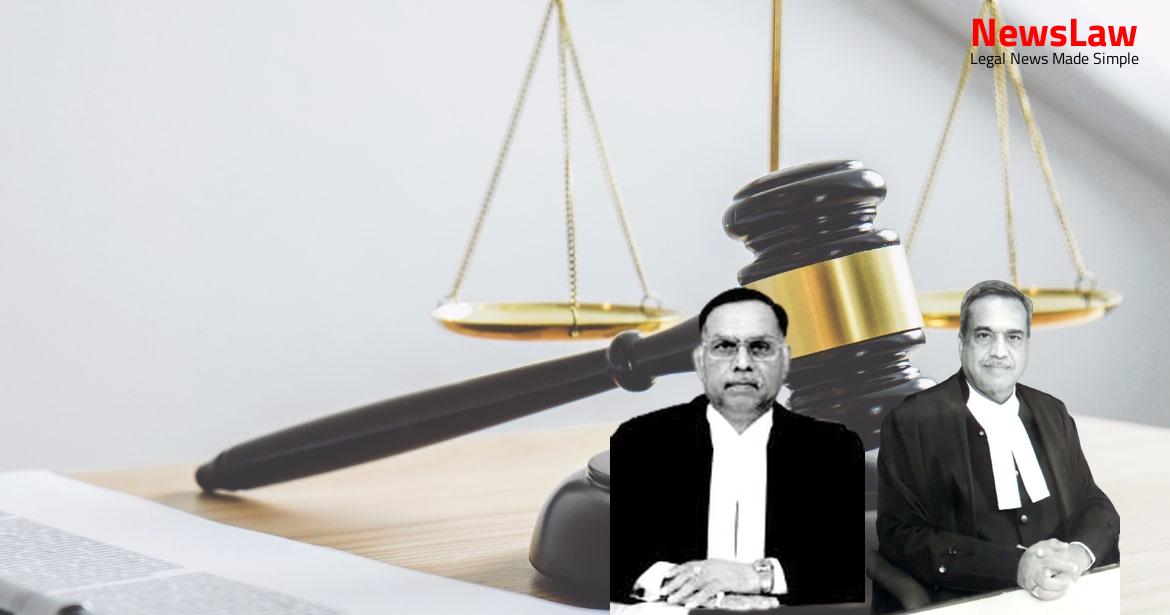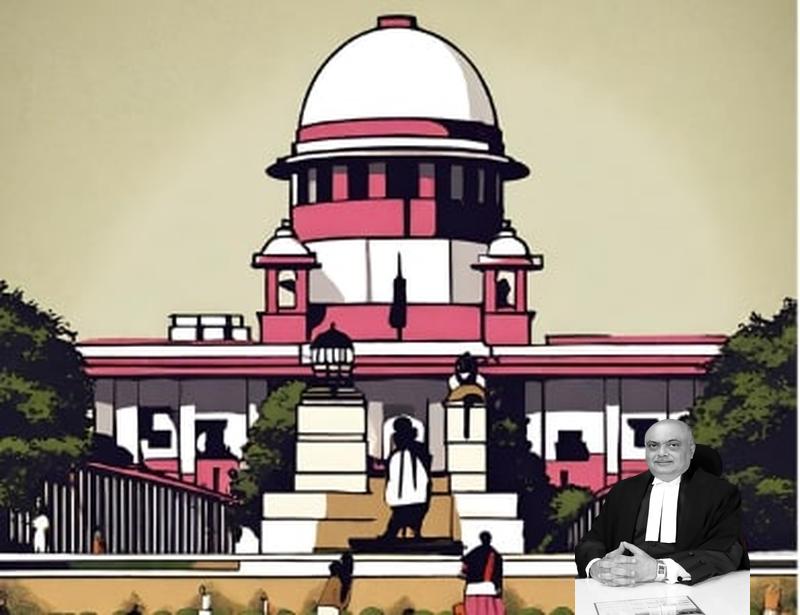The said writ petition was contested by the Bank, taking the plea that due to irregularities in granting loans and cash credit facilities under the Credit Guarantee Fund Trust Scheme for Micro & Small Enterprises (for short “CGTMSE”) and otherwise in routine loans, loss was caused to the Bank. Learned Single Judge vide order dated 03.04.2012 allowed the said writ petition in part and directed the Bank to release the employer’s contribution of the provident fund as well as gratuity with interest @ 8.5% p.a. On filing the Special Appeal by the Bank, the Division Bench allowed the same in part maintaining the order of grant of leave encashment, but set-aside the grant of provident fund (Bank’s contribution) and gratuity on the pretext that by an act of the appellant, loss has been caused to the Bank.
Irshad Ahmad, learned counsel appearing for the appellant contends that Rule 13 of the Punjab National Bank Employees’ Provident Fund Trust Rules (for short “P.F. Learned Single Judge has rightly observed that Regulation 4 of the Punjab National Bank Officer Employees’ (Discipline and Appeal) Regulations 1977 (for short “1977 Regulations”) makes it clear that a dismissal of an employee shall ordinarily be a disqualification for future employment whereas removal from service shall not be a disqualification for future employment. Rajesh Kumar Gautam, learned counsel for the respondent Bank argued in support of the findings recorded in the impugned order passed by the Division Bench and contends that the normal retirement of an employee cannot be equated with compulsory retirement inflicted by way of penalty.
Learned counsel has also placed reliance on the judgment of this Court in Canara Bank and another vs Lalit Popli (Dead) through Legal Representatives (2018) 11 SCC 87. As per Rule 2 of the Trust Rules, the contribution of the employee and employer shall be deposited in the provident fund trust account, which shall be a contributory provident fund.
In case where the Bank shall have first lien as provided in Rule No 13 above, the Trustees shall on receipt of the resolution passed by the Bank’s Board of Directors pay to the Bank out of such member’s individual account in the Fund, such portion thereof not exceeding the Bank’s contribution to it, as the Board might ask the Trustees to pay, and the receipt of the Bank for any payment so made, shall be complete discharge to the Trustees.
The contribution of Bank to provident fund was forfeited as per resolution dated 20/12/2010 of the Board of Directors based on the communication dated 19/11/2010 as referred by the learned Single Judge. By filing this appeal, the appellant has averred and produced the report of the internal auditor dated 27/7/2009 (Annexure P-1). Thus, prior to the chargesheet as per report of the internal auditor, loss has not been reported to the Bank. In view of the above discussions, the findings recorded by learned Single Judge with regard to payment of Bank’s contribution of provident fund is equitable, just and is liable to be upheld, setting aside the findings of the Division Bench. In view of the above, an officer of the Bank shall be eligible for gratuity on retirement; death; disablement rendering him unfit as certified by an approved medical officer; resignation after completion of 10 years of continuous service or termination of service after completion of 10 years except in a case if such termination is by way of punishment.
The relevant portion has been reproduced as under: (6)
Notwithstanding anything contained in sub- section (1)- (a) the gratuity of an employee, whose services have been terminated for any act, wilful omission or negligence causing any damage or loss to, or destruction of, property belonging to the employer shall be forfeited to the extent of the damage or loss so caused; (b) the gratuity payable to an employee shall be wholly forfeited- (i) if the services of such employee have been terminated for his riotous or disorderly conduct or any other act of violence on his part, or (ii) if the services of such employee have been terminated for any act which constitutes an offence involving moral turpitude, provided that such offence is committed by him in the course of his employment.
Singla vs Punjab National Bank and others (2013) 3 SCC 472, while considering the issue of interest on the late payment of gratuity to a retired employee of Punjab National Bank held that the payment of Gratuity Act will override the Punjab National Bank (Employees’)
Pension Regulations, 1995 (for short “1995 Pension Regulations”). – The provisions of this Act or any rule made thereunder shall have effect notwithstanding anything inconsistent therewith contained in any enactment other than this Act or in any instrument or contract having effect by virtue of any enactment other than this Act.” (emphasis supplied)
A perusal of Section 14 leaves no room for any doubt that a superior status has been vested in the provisions of the Gratuity Act vis–vis any other enactment (including any other instrument or contract) inconsistent therewith. Therein harmonizing the Regulations with the provisions of the Gratuity Act and in clauses 8 and 14 of the Circular, the instances as to when gratuity could be forfeited, have been specified. Section 4(1) reads as under: Gratuity shall be payable to an employee on the termination of his employment after he has rendered continuous service for not less than five Years, a. PAYMENT UNDER OFFICERS SERVICE REGULATIONS Rules relating to payment of gratuity of officers staff have been laid down under Regulation 46 of PNB Officers Service Regulations, 1979 which is as under:- (I) Every officer shall be eligible for gratuity on: (a) Retirement, (b) death (c) disablement rendering him unfit for further service as certified by a medical officer approved by the bank, or (d) resignation after completing ten years of continuous service or termination of service in any other way except by way of punishment after completion of 10 years of service. Provided that where an officer has completed more than 30 years of service, he shall be eligible by way of gratuity for an additional amount at the rate of one half of month pay for each completed year of service beyond thirty years. Regulation 4 of the said Regulations specifies major penalties: – “ Major penalties : (f)…….. ”
Also Read: https://newslaw.in/supreme-court-upholds-merit-of-candidates-in-sweety-kumari-v-the-appellants-case/
The explanation to Regulation 4 under the heading “Major Penalties” specifies some of the situations which shall not amount to penalty within the meaning of this Regulation. The explanation as given in clause 14(1)(a) of the said Circular clarifies that in case of termination after at least 10 years of service in the Bank, if such termination is not by way of punishment as dismissal or removal, the gratuity may be paid.
In this regard, the judgment of the Full Bench of Punjab & Haryana High Court in UCO Bank (supra) is relevant, wherein the Full Bench has duly considered the issue of forfeiture of gratuity and the relevant paras of the said judgement are reproduced as under: “ 22. However, whether the appellant-Bank ultimately suffered loss and what was the actual loss is not reflected. It is for this reason that it was incumbent upon the appellant-Bank to mention specifically about the actual loss having been suffered, if it suffered, in the show cause notice itself with particulars of that loss in order to enable the respondent to meet the same. In the facts of the present case, the said judgement squarely applies looking to the situation wherein the quantification of loss has not been proved in the enquiry. The learned Single Judge has correctly observed that as per the 1977 Regulations, compulsory retirement; removal from service which shall not be a disqualification for future employment and dismissal which shall ordinarily be a disqualification for future employment are distinct and separate punishments. The appeal is allowed.
Case Title: JYOTIRMAY RAY Vs. THE FIELD GENERAL MANAGER, PUNJAB NATIONAL BANK
Case Number: C.A. No.-006611-006611 / 2015



